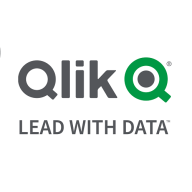

Quest SharePlex and Qlik Replicate are competing data replication tools, with Qlik Replicate often having an advantage due to its advanced features despite higher costs.
Features: Quest SharePlex focuses on database replication, ensuring minimal downtime with high availability and scalability. It efficiently handles heterogeneous database migrations and offers reliable data transfer accuracy. The Compare and Repair tool aids in maintaining data integrity during migrations. Qlik Replicate excels with extensive data source support and real-time replication capabilities, making it suitable for complex environments. It uses Change Data Capture for real-time data processing and supports a wide range of databases. Its ability to handle diverse data tasks and provide real-time analytics enhances its versatility.
Room for Improvement: Quest SharePlex could benefit from enhancing its user interface to make it more intuitive for new users, as well as expanding its real-time data capabilities to further compete with Qlik Replicate. Additionally, improving documentation around advanced features like PEP could aid user understanding. Qlik Replicate may need to address its higher resource usage which can impact performance. Simplifying its deployment process and providing more comprehensive onboarding resources could improve user experience. Expanding its AI capabilities for data transformation might also enhance its appeal for advanced data analysis.
Ease of Deployment and Customer Service: Quest SharePlex offers a straightforward deployment process, making it ideal for organizations seeking quick setup and robust support. Its comprehensive support ensures smooth operation. Qlik Replicate, while slightly more complex to deploy, offers detailed training and documentation to aid users through setup. Its extensive support resources cater well to intricate deployments, assisting users with complex configurations.
Pricing and ROI: Quest SharePlex provides a cost-effective solution with lower initial costs and maintenance fees, offering a faster return on investment for budget-conscious organizations. Its pricing structure appeals to those prioritizing upfront investment. Qlik Replicate, with its higher setup costs, justifies the expense through its advanced feature set and potential long-term benefits, particularly in complex data environments. The decision often depends on whether an organization values initial cost savings or extensive features for long-term gain.

Qlik Replicate is a data replication solution for replicating data from one source database to another for business intelligence software. It offers data manipulation and transformations, replication without impacting source databases, and ease of use without needing ETL. The solution is stable and user-friendly, with detailed logging and support.
Qlik Replicate has improved the organization by allowing each team to replicate their data into a single-source data location. The most important feature of Qlik Replicate is its ability to replicate and update records without needing a programmer.
SharePlex database replication empowers your organization to achieve its database goals now and into the future. Make use of built-in monitoring, conflict resolution, data comparison and synchronization capabilities backed by award-winning support.
We monitor all Data Integration reviews to prevent fraudulent reviews and keep review quality high. We do not post reviews by company employees or direct competitors. We validate each review for authenticity via cross-reference with LinkedIn, and personal follow-up with the reviewer when necessary.